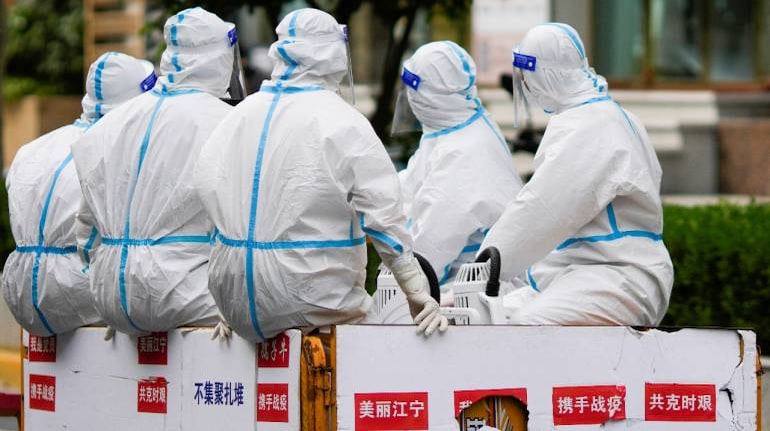



China’s top leader, Xi Jinping, strongly reaffirmed his commitment to the country’s “zero-COVID” policy Thursday, reinforcing an ideological hard line amid growing outcry against the economic costs and human toll of the tough pandemic control measures.
“Persistence is victory,” read an official summary of a meeting led by Xi of the ruling Chinese Communist Party’s elite Standing Committee. “This is far from the time to rest and take a breath.”
The statement made clear that the party would show no tolerance for the recent chorus of criticism of the policy, including from several senior members of the academic establishment, who usually keep their views muted.
“Resolutely fight against all words and deeds that distort, doubt and deny the country’s pandemic policies,” the readout said.
The remarks are Xi’s first public comments on China’s "zero-COVID" policy since Shanghai, the country’s financial capital and home to 25 million people, went into a punishing lockdown in late March to stifle a large coronavirus outbreak. The effort was poorly managed from the start, prompting a rare outpouring of complaints about food shortages, delayed medical treatments and unhygienic conditions in mass isolation centres.
In response, online censors have worked unceasingly to scrub dissent on the issue. Censored content included an essay by Liu Xiaobing, a professor at Shanghai University of Finance and Economics, and a member of China’s national legislature.
“The policy enforcers only worry about the trouble they could bring on themselves if they relax controls,” Liu wrote. “They never worry about being called to account from the harm caused by dead-handed restrictions.”
The episode has been the biggest test for the government since the coronavirus first emerged in Wuhan more than two years ago. Although cases have declined in recent days, much of Shanghai remains under strict lockdown.
On Friday, China reported 4,439 cases, including 4,088 in Shanghai. Recent outbreaks in Beijing, the country’s capital, and Zhengzhou, a city of 12 million, have led to lockdowns of many neighbourhoods. Stringent lockdowns around the country have forced factories and businesses to close temporarily, leaving millions in China out of work and snarling supply chains worldwide.
Stocks in Asia fell Friday after reports of China’s pledge to stick to its "zero-COVID" policy. Two major sporting events in China — the Asian Games and the World University Games — were also postponed. Another event, the Asian Youth Games, was cancelled.
The statement reflects the party’s hardening line. In March, in the face of proliferating outbreaks, Xi had urged officials to reduce the impact of the country’s COVID-19 response on people’s livelihoods.
In Thursday’s statement, the leadership again acknowledged that implementing the "zero-COVID" policy had suffered from problems like “insufficient preparation.” Officials were urged to “actively respond to social concerns,” increase vaccination uptake and act faster to bring small outbreaks under control.
But more emphasis was placed on adhering to the "zero-COVID" playbook, which relies on strict lockdowns, mass testing, rigorous contact tracing and tough border controls.
The party has pointed to the success of the policy as proof of the superiority of its top-down governance compared with liberal democracies. On Thursday, it warned that moving away from the "zero-COVID" approach would lead to mass sickness and deaths — something that Xi, who is set to take an unprecedented third term later this year, does not want to risk.
“Our prevention and control policies can stand the test of history,” the statement read.
(Author: Amy Qin)/(c.2021 The New York Times Company)
Discover the latest Business News, Sensex, and Nifty updates. Obtain Personal Finance insights, tax queries, and expert opinions on Moneycontrol or download the Moneycontrol App to stay updated!
Find the best of Al News in one place, specially curated for you every weekend.
Stay on top of the latest tech trends and biggest startup news.